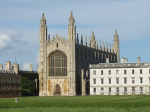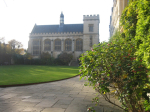World News
-
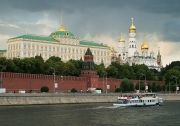 Russia threatens to target British military assets following Foreign Secretary's comments
Russia's Foreign Ministry has escalated tensions by designating the United Kingdom as a "party to the conflict" and issuing a stark warning of potential targeting of British military sites andRead More...
Russia threatens to target British military assets following Foreign Secretary's comments
Russia's Foreign Ministry has escalated tensions by designating the United Kingdom as a "party to the conflict" and issuing a stark warning of potential targeting of British military sites andRead More... -
 Bomb threat evacuates British Airways flight from Bermuda to London
Passengers scheduled to travel from Bermuda to London found themselves evacuated from the plane following the receipt of a bomb threat via email at LF Wade International Airport.Read More...
Bomb threat evacuates British Airways flight from Bermuda to London
Passengers scheduled to travel from Bermuda to London found themselves evacuated from the plane following the receipt of a bomb threat via email at LF Wade International Airport.Read More... -
 UK Foreign Secretary Lord Cameron's historic visit to Ashgabat: strengthening bilateral relations with Turkmenistan
British Foreign Secretary, Lord David Cameron, embarked on a significant diplomatic mission with his visit to Ashgabat, marking the first instance of a UK Foreign Secretary setting footRead More...
UK Foreign Secretary Lord Cameron's historic visit to Ashgabat: strengthening bilateral relations with Turkmenistan
British Foreign Secretary, Lord David Cameron, embarked on a significant diplomatic mission with his visit to Ashgabat, marking the first instance of a UK Foreign Secretary setting footRead More... -
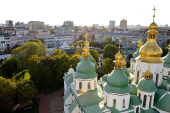 British Foreign Secretary affirms Ukraine's right to defensive action amid Russian incursions
British Foreign Secretary Lord Cameron, during his visit to Kyiv, asserted that Ukraine possesses the autonomy to determine the utilization of British weaponry and emphasizedRead More...
British Foreign Secretary affirms Ukraine's right to defensive action amid Russian incursions
British Foreign Secretary Lord Cameron, during his visit to Kyiv, asserted that Ukraine possesses the autonomy to determine the utilization of British weaponry and emphasizedRead More... -
 Pro-China candidate emerges victorious in Solomon Islands prime ministerial vote
In a significant development indicating the enduring alliance between the Solomon Islands and Beijing, lawmakers have elected a pro-China candidate as their prime minister.Read More...
Pro-China candidate emerges victorious in Solomon Islands prime ministerial vote
In a significant development indicating the enduring alliance between the Solomon Islands and Beijing, lawmakers have elected a pro-China candidate as their prime minister.Read More...

Culture
-
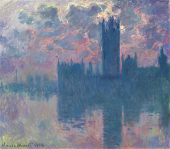 Fake Monet and Renoir paintings detected on eBay using AI
Up to 40 counterfeit paintings, including alleged works by Monet and Renoir, have been identified for sale on eBay, according to research conducted by Dr. Carina Popovici, an expertRead More...
Fake Monet and Renoir paintings detected on eBay using AI
Up to 40 counterfeit paintings, including alleged works by Monet and Renoir, have been identified for sale on eBay, according to research conducted by Dr. Carina Popovici, an expertRead More... -
 Pippa Middleton and James Matthews unveil lodge at Bucklebury Farm
Pippa Middleton and her billionaire husband James Matthews have inaugurated the lodge at Bucklebury Farm Park in Berkshire, offering a venue for parties, events, and Pilates sessions.Read More...
Pippa Middleton and James Matthews unveil lodge at Bucklebury Farm
Pippa Middleton and her billionaire husband James Matthews have inaugurated the lodge at Bucklebury Farm Park in Berkshire, offering a venue for parties, events, and Pilates sessions.Read More... -
 Five British museums nominated for prestigious arts prize
Museums across Skipton, Dundee, Manchester, and London are vying for the esteemed title of Museum of the Year 2024.Read More...
Five British museums nominated for prestigious arts prize
Museums across Skipton, Dundee, Manchester, and London are vying for the esteemed title of Museum of the Year 2024.Read More... -
 Gustav Klimt portrait sells for £25.7 million at Vienna auction
A long-lost portrait by Gustav Klimt, depicting a young woman, fetched a staggering 30 million euros (£25.7 million) at an auction held in Vienna on Wednesday.Read More...
Gustav Klimt portrait sells for £25.7 million at Vienna auction
A long-lost portrait by Gustav Klimt, depicting a young woman, fetched a staggering 30 million euros (£25.7 million) at an auction held in Vienna on Wednesday.Read More... -
 Rishi Sunak: remembering those lost in terror attack
In his Passover message to the Jewish community, Prime Minister Rishi Sunak acknowledges the somber reality that "for too many families, there will be empty seats" at the Seder table thisRead More...
Rishi Sunak: remembering those lost in terror attack
In his Passover message to the Jewish community, Prime Minister Rishi Sunak acknowledges the somber reality that "for too many families, there will be empty seats" at the Seder table thisRead More... -
 Co-op Live: Manchester's new arena opens with high capacity and ambitions
A monumental addition to Manchester's entertainment landscape, the new £365m Co-op Live arena is poised to claim the title of the largest indoor arena in the UK. Nestled beside ManchesterRead More...
Co-op Live: Manchester's new arena opens with high capacity and ambitions
A monumental addition to Manchester's entertainment landscape, the new £365m Co-op Live arena is poised to claim the title of the largest indoor arena in the UK. Nestled beside ManchesterRead More... -
 Brontë birthplace unveils open day prior to renovation
The birthplace of the renowned Brontë sisters is set to welcome visitors for a special glimpse inside before embarking on a significant refurbishment.Read More...
Brontë birthplace unveils open day prior to renovation
The birthplace of the renowned Brontë sisters is set to welcome visitors for a special glimpse inside before embarking on a significant refurbishment.Read More... -
 Taylor Swift's 'The Tortured Poets Department' smashes Spotify record
Taylor Swift's latest album, "The Tortured Poets Department," has shattered Spotify's record for the most-streamed album in a single day, the platform has announced. Not only did Swift'sRead More...
Taylor Swift's 'The Tortured Poets Department' smashes Spotify record
Taylor Swift's latest album, "The Tortured Poets Department," has shattered Spotify's record for the most-streamed album in a single day, the platform has announced. Not only did Swift'sRead More... -
 Historic London pub, linked to Royalty, ravaged by fire: a heartbreaking loss
A renowned London pub, steeped in history dating back possibly to the 16th century, has suffered extensive damage in a devastating fire. The Burn Bullock, a grade II-listed establishmentRead More...
Historic London pub, linked to Royalty, ravaged by fire: a heartbreaking loss
A renowned London pub, steeped in history dating back possibly to the 16th century, has suffered extensive damage in a devastating fire. The Burn Bullock, a grade II-listed establishmentRead More... -
 Salvator Rosa painting stolen from Oxford, recovered in Romania, and returned to UK
A painting valued at EUR 2 million, stolen from an art gallery at Oxford University approximately four years ago, has been recovered in Romania and returned to UK judicial authorities,Read More...
Salvator Rosa painting stolen from Oxford, recovered in Romania, and returned to UK
A painting valued at EUR 2 million, stolen from an art gallery at Oxford University approximately four years ago, has been recovered in Romania and returned to UK judicial authorities,Read More... -
 Plans to demolish former Museum of London site put on pause
A last-minute intervention from Levelling Up Secretary Michael Gove has halted plans to demolish the former Museum of London site.Read More...
Plans to demolish former Museum of London site put on pause
A last-minute intervention from Levelling Up Secretary Michael Gove has halted plans to demolish the former Museum of London site.Read More... -
 June’s London Fashion Week returns with fresh concept
The British Fashion Council has unveiled an innovative approach for the upcoming London Fashion Week in June, aiming to spark a cultural phenomenon. Set to take place fromRead More...
June’s London Fashion Week returns with fresh concept
The British Fashion Council has unveiled an innovative approach for the upcoming London Fashion Week in June, aiming to spark a cultural phenomenon. Set to take place fromRead More... -
 London's inaugural Taiwanese culture festival explores island's identity and history
London's vibrant Notting Hill district is about to experience a taste of Taiwanese culture with the launch of the 16-day Taiwan Festival on Friday, April 12.Read More...
London's inaugural Taiwanese culture festival explores island's identity and history
London's vibrant Notting Hill district is about to experience a taste of Taiwanese culture with the launch of the 16-day Taiwan Festival on Friday, April 12.Read More...

British Queen celebrates
Most Read
- Teen held after US woman killed in London stabbings
- Heave-ho Harry! Prince prepares to join the walking wounded in ice trek to North Pole
- Football: Farhad Moshiri adamant Everton deal above board
- "Master of English Style". Interview with Designer Lydia Dart
- Letter to the Financial Times from Lord Mayor Alderman Michael Bear
Media

Zebras have stripes to deter the tsetse and other blood-sucking flies, according to a fresh bid to settle a debate that has raged among biologists for over 140 years.
Since the 1870s, in a dispute sparked by the founders of evolutionary theory Charles Darwin and Alfred Russel Wallace, scientists have squabbled over how the zebra got its trademark look.
Are its stripes for camouflage, protecting the zebra with a "motion dazzle confusion effect" against hyenas, lions and other predators in the savannah?
Do the stripes radiate heat to keep the zebra cool?
Or do they have a social role -- for group identity, perhaps, or mating?
But a new study, published in the journal Nature Communications on Tuesday, says the strongest likelihood is that the stripes discourage parasitic flies.
The finding was intriguingly thrown up by lab experiments in 2012 that showed how blood-feeding flies shun stripey surfaces and prefer instead to land on uniform colours.
Researchers led by Tim Caro of the University of California at Davis, say there is no black-and-white answer to the Great Stripe Riddle -- but the insect theory is by far the best bet.
"A solution to the riddle of zebra stripes, discussed by Wallace and Darwin, is at hand," they write.
The team found a strong geographical overlap between zebras and the two groups of biting flies, Tabanus and Glossina, that feed on equid species, which explains why zebras would need a shield against this pest.
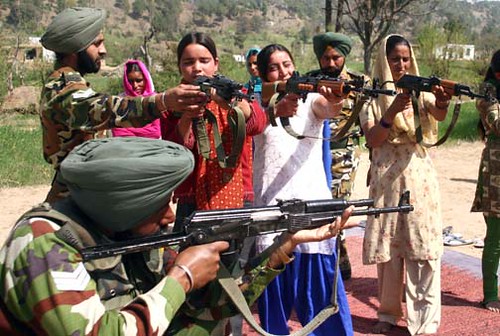
India remains the biggest buyer of arms in the world, importing nearly three times as many weapons as its nearest competitors China and Pakistan over the last five years, a Swedish think tank said.
The total volume of arms sales was up 14 percent in 2009-13 compared to the previous five years, according to the Stockholm International Peace Research Institute (SIPRI).
Indian imports of major weapons rose by 111 percent in the last five years compared to 2004–08. Its share of total global arms imports increased from 7 to 14 percent, SIPRI said.
India replaced China as the world's biggest arms buyer in 2010. With its domestic defence industry struggling to manufacture high-tech arms, India is in the midst of a defence spending binge as it struggles to keep up with better-equipped Chinese forces and a range of military challenges in its volatile neighbourhood.
The main supplier of arms to India in 2009-13 was Russia, accounting for 75 percent of all imports -- reflecting India's need to upgrade and modernise weapons systems dating back to their close relationship during the Cold War.
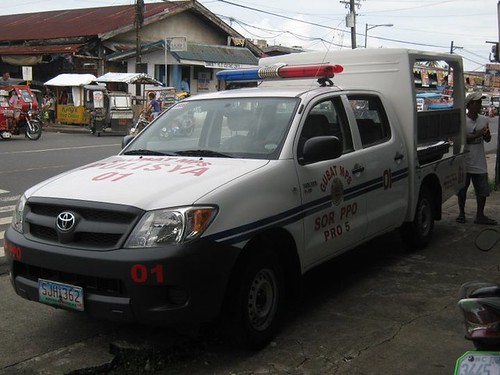
Toyota said Monday it has suspended production at its two Indian auto assembly plants in response to threats against management and "deliberate" assembly-line stoppages, as efforts to hammer out a labour deal failed.
The world's biggest automaker said the move will see the lock-out of about 6,400 employees at the factories in southern India.
Company and union officials had been trying to sign a new contract for the past 10 months, with the local government helping mediate negotiations.
"In the meantime, under the instigation of the union, certain sections of the employees have resorted to deliberate stoppages of the production line, abuse and threatening of supervisors thereby continuously disrupting business for the past 25 days," Toyota said in a statement.
"All these unlawful activities have been detailed in the lock-out notice. With this background, the company is left with no other option but to declare a lock-out of the premises to ensure the safety of its workers and management personnel," it added.
A Tokyo-based company spokesman said Toyota hoped to restart production quickly, but could not give a timeline for any re-opening of the plants, which make a range of models including the flagship Camry sedan, the Corolla and the Prius hybrid.
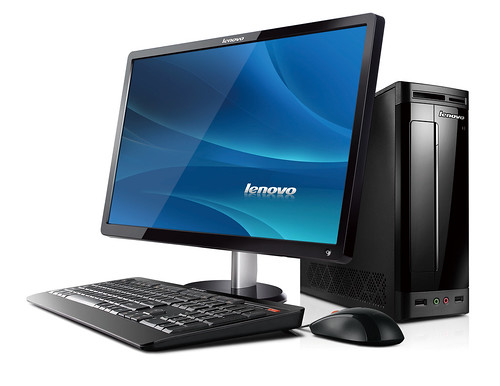
In 1984, with only $25,000 in Chinese government funding and a dusty 20-square-metre bungalow as their headquarters, a small group of scientists in Beijing founded a firm called New Technology Developer Inc.
Thirty years later, the tech company -- which went on to become Legend and later, Lenovo -- is the world's biggest personal computer maker, and has just completed two major deals with IBM and Google that analysts say will help it to diversify away from the sagging PC market and boost its expansion overseas.
Lenovo's $2.3 billion purchase of IBM's low-end server business and its $2.91 billion acquisition of Motorola from Google are evidence of the Chinese tech giant's "global ambitions", said Jean-Francois Dufour at DCA Chine-Analyse.
"Just as iPhones and iPads have overtaken Macs in commercial importance for Apple, smartphones and tablets are expected to replace PCs in part for Lenovo," said Dufour, who called the firm "the pioneer of Chinese companies' global offensive".
The back-to-back deals are all the more significant because of their timing, coming just as US President Barack Obama noted in his annual State of the Union address on Tuesday that "for the first time in over a decade, business leaders around the world have declared that China is no longer the world's number one place to invest; America is".
With Chinese investment in the US doubling to $14 billion in 2013, a larger and larger share of that capital is coming from America's rival across the Pacific -- a fact unmentioned by Obama in his speech.
From its humble beginnings, Lenovo has charted an impressive course in the personal computer market. Under its earlier name, Legend, it secured the biggest share in China's domestic market in 1996 and in the Asia-Pacific region three years later.
Its 2003 decision to change the name of its PC brand from Legend to Lenovo in a bid to boost its sales abroad marked the beginning of its ascent to global preeminence.
That move was followed by a successful 2004 bid to serve as the exclusive computing technology provider for the 2006 Turin Winter Olympics and the 2008 Beijing Games, making it the first Chinese firm to become a major Olympic sponsor.
But it was Lenovo's 2005 acquisition of IBM's PC division for $1.75 billion that cemented its rise, setting it on track to unseat Hewlett-Packard as the world's top PC vendor last year.
Lenovo now has PC products in more than 160 countries and has worked to build its global brand by recruiting celebrities such as basketball star Kobe Bryant and Hollywood actor Ashton Kutcher, who the company named a "product engineer" for its new Yoga Tablet device.
With its Motorola purchase, Lenovo hopes to replicate its PC market success in the smartphone universe. The deal "will immediately make Lenovo a strong global competitor in smartphones", Lenovo chairman and chief executive officer Yang Yuanqing said.
As it did after the 2005 IBM deal, however, it faces tough odds.

Samsung Electronics promised better shareholder returns, dismissed fears over smartphone market saturation and signalled a more aggressive acquisitions policy Wednesday at a rare analysts' briefing to boost its flagging stock price.
Addressing the first such event for eight years, the company's top executives talked up its growth potential and offered some guidance on how it plans to spend a $50 billion cash pile.
President and chief financial officer Lee Sang-hoon said Samsung would "put more emphasis on shareholder return" and would target a dividend yield this year of 1.0 percent of the average share price.
The company will review its shareholder return policy every three years to reflect changes in business conditions, he added.
The current dividend yield is around 0.5 percent, a return that has seen some shareholders accuse the world's largest technology company by revenue of hoarding cash.
Samsung's share price trading at 1,460,000 won at midday, down 1.68 percent from Tuesday's close.
The firm has posted record profits in six of the past seven quarters -- largely due to its growing dominance of the global smartphone market -- but its stock price trades at a significant discount compared to its rivals.
At one point this year, it was down as much as 20 percent.
Wednesday's briefing for 350 invited analysts and institutional investors at a Seoul Hotel, was a rare event for a company renowned for its relative lack of transparency.
Samsung's massive net cash balance is equivalent to more than 20 percent of its market capitalisation, and some analysts have predicted it could grow to $100 billion over the next two years.
Lee denied the amount was excessive, and said that -- along with the increased dividend yield -- it would be used to fund significant investment in research and development, particularly in software, to help secure future growth.

Spanish officials on Tuesday were seeking the winner of a 4.7 million-euro ($6.3-million) lottery jackpot after the lucky ticket was found unclaimed.
The slip of paper turned up in La Coruna, northwestern Spain, the city's mayor said. Media reports said the vendor who sold it found it on his counter.
"It is a very unusual item. It is not a necklace or a wallet that has been lost, but a lottery ticket worth nearly five million euros," said mayor Carlos Negreira in a statement.
"I am going to be the only mayor in Spain who is looking for a millionaire not so as to ask for money but to give it."
The vendor handed the ticket, issued for a lottery draw in June 2012, back to the state lottery company.

The German Günter Wamser crossed with horses from South to North America, from Tierra del Fuego to Alaska. Soon he will reach the goal of his journey Marathon, which started in 1994 – and gave him a new view of their home.
If Günter Wamser tells of his adventures in America, it is about a journey, but really it’s about much more than the movement from A to B: the freedom to do what you really want, without leaving to well-meaning advice outside to take care of. 19 years ago traveled the trained aircraft engine mechanic to Tierra del Fuego at the southernmost tip of South America, two Criollo horses, hardy animals of the Gauchos bought a ranch, one for the riders, one for luggage. He rode off, still further north. “This trip has become my way of life, with all its ups and downs. My life has gained in intensity,” says the now 54-year-old. In the very first days of his tour, he experienced two encounters that made him doubt the joys of a long journey. It was not until he met a cyclist from Berlin, who was kicking in one and a half years from California to Patagonia. He was sitting by the roadside, cursing the headwinds and wanted to give up, even though he was only a hundred kilometers away from the target.

At present, the history of Eastern European Jewry in particular is a popular field of scientific studies. Our correspondent has had an interview with an expert in this field Oleg Kozerod, Doctor

Former Italian Premier Silvio Berlusconi has been convicted for the illegal publication of transcripts of wire-tapped conversations in a newspaper owned by his media empire.
A Milan court on Thursday sentenced him to one year in jail, although he is unlikely to be put behind bars during a possible appeal.
The verdict carries no impact on Mr Berlusconi's eligibility to participate in a new government.
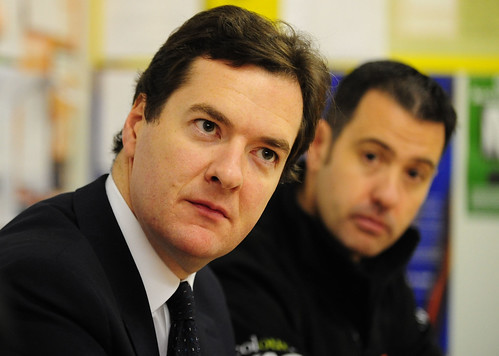
Sickness benefit will be stripped from claimants who refuse to get treatment for their problems under a crackdown to be tested in a £25 million Government trial.
Ministers want to extend the concept of "conditionality" used to force the jobless to seek work to welfare payments for those with health complaints as well.
A series of pilots around the country for what is being touted as a "tough love" approach by Downing Street sources will be announced before Christmas.
Chancellor George Osborne is seeking ways to slash a further £10 billion from the welfare budget by 2016/17 on top of £18 billion of cuts already announced.
Under the proposals claimants would be expected to attend regular sessions with a health care professional who could require them to attend therapy and other treatments to help them recover.
It is unclear exactly what conditions would be caught but No10 suggested drug and alcohol addicts who failed to attend rehab courses would be among them in the initial trials.
Funding for the pilots has been agreed, they said.











